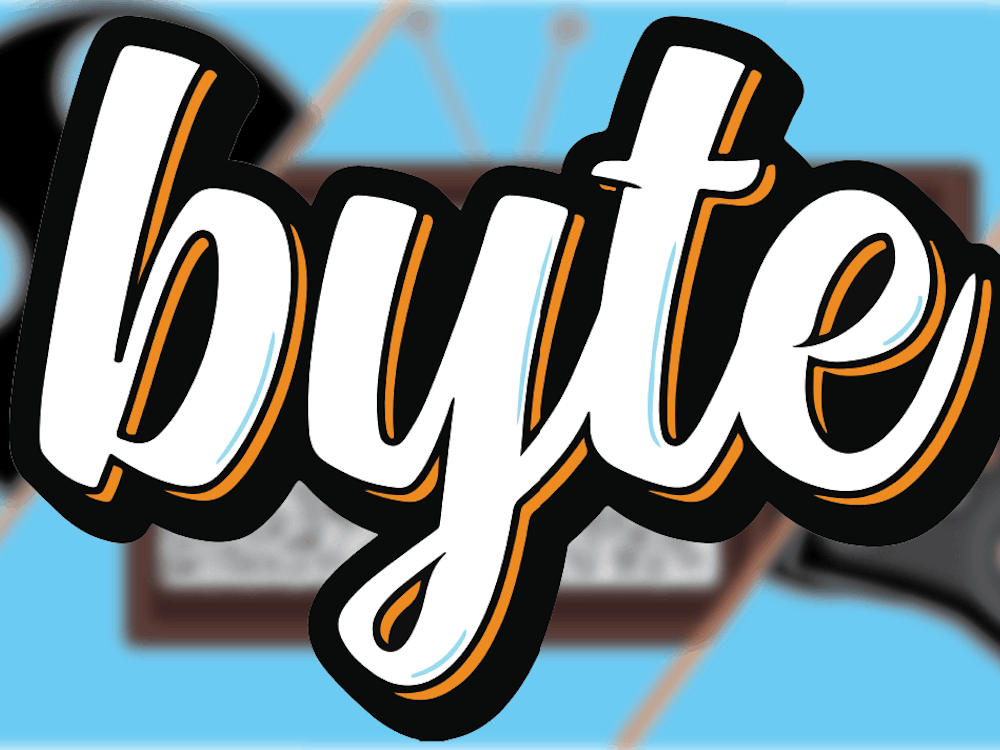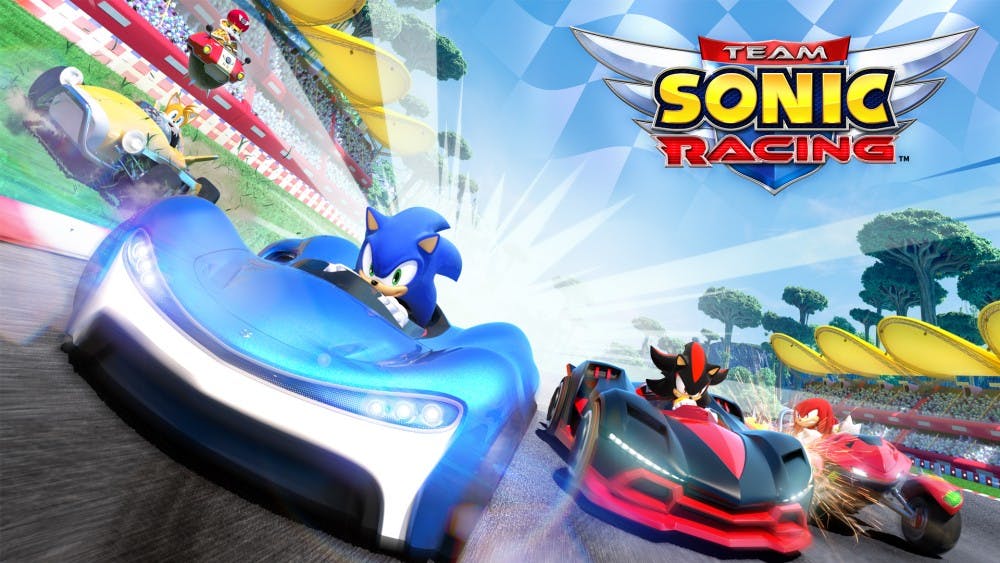Disclaimer: This review is of the Nintendo Switch version of the game, played in both handheld and portable mode
The long-awaited third installment of the Sonic Racing series is finally here, this time with a new twist in its team-focused gameplay that helps solve many of the issues of traditional kart racers. Instead of having to rely on luck, players can finally leave the end result up to their skill. As a disclaimer, I played Team Sonic Racing on the Nintendo Switch, and I primarily played in docked mode with a little portable play sprinkled in when I was in bed. I found very little difference in terms of the amount of frame drops I experienced between both docked and undocked play.
Although the Sonic Racing series may seem like a Mario Kart knock-off at first glance (and it’s undoubtable that much inspiration was taken from the wildly popular franchise), Team Sonic Racing makes the formula much more balanced. Team Sonic Racing includes many of the same items that are present in most every Mario Kart game (Blue Cube Wisp is a Banana Peel, Orange Rocket Wisp is a Green Shell, Crimson Eagle Wisp is a red shell, etc.). Don’t let that fool you, though. Team Sonic Racing is faster, more action-packed, and more strategic. With its team-based gameplay, even the most devastating setbacks can mean nothing in the grand scheme, which saves the momentum and leaves everyone feeling completely satisfied.
Game mechanics

Image from Steam
Team Sonic Racing‘s team-based gameplay aimed to mend all the problems many people have with the typical kart racers, and it succeeds spectacularly. For instance, getting hit by an item and spinning out means practically nothing if a teammate is nearby, since the game includes mechanics that help catch unskilled or unlucky players back up to speed with its ‘Skimboost’ and ‘Slingshot’ mechanics. These mechanics help remedy much of the momentum-killing that plagues many a kart racers by helping players get back into the race.
The Ultimate Gauge is the most interesting part of Team Sonic Racing. Past installments in the Sonic Racing series have had character-specific Ultimates that are obtained randomly from item boxes if you are far behind. In Team Sonic Racing, anyone can get an Ultimate regardless of their position. The team shares an Ultimate Gauge that fills up whenever the aforementioned actions are performed, or when a member of the team takes down an enemy with an item. When the gauge is full, press the X button to perform the Team Ultimate. This boosts every stat to the max for all team members and makes all team members invincible. This means that teamwork is not only a good idea, but practically required in order to win a race.
Tracks
The tracks in Team Sonic Racing are all interesting in their own little ways. Similar to how the main series Sonic games work, there are many shortcuts to be found on each track and little techniques to learn that may increase your efficiency in a race. Many of the shortcuts encourage certain character types in order to easily traverse through. For instance, Technical types are not slowed down by rough terrain such as grass or slippery ice, so they can cut many corners without hassle. Meanwhile, Power types can crush barriers that open up major shortcuts. This adds a layer of depth to the character select screen, because a team can be made up of any combination of types, so it is important to maintain a balance of Speed, Power, and Technical type racers.
Outside of the races

Image from Steam
In terms of story, Team Sonic Racing doesn’t take itself seriously in the slightest, which is par for the course for most spinoff games in any series. The game barely cares that it has a story, and by default skips the story for you. It’s cliché and pointless. The story mode itself, however, is actually quite fun and includes all sorts of fun and satisfying modes.
Team Sonic Racing is far from perfect, however. While I enjoy most aspects of it, there is much to be said about the clunky UI, harsh load times, and occasional frame drops (at least on the Switch version). The UI includes pointless animations and long menus that take forever to scroll through. During a race, the Ultimate meter is in an awkward spot that makes it hard to see all the time, and each teammate’s position is on a different corner of the screen, which is fairly annoying. The load times can take up to thirty seconds (similar to another popular game starring the hedgehog), which is especially annoying during Grand Prix, where they kill your momentum harder than an Ivory Lightning Wisp.

Images: Steam
Featured Image: Steam
For more entertainment related content, visit us at Byte BSU!



















